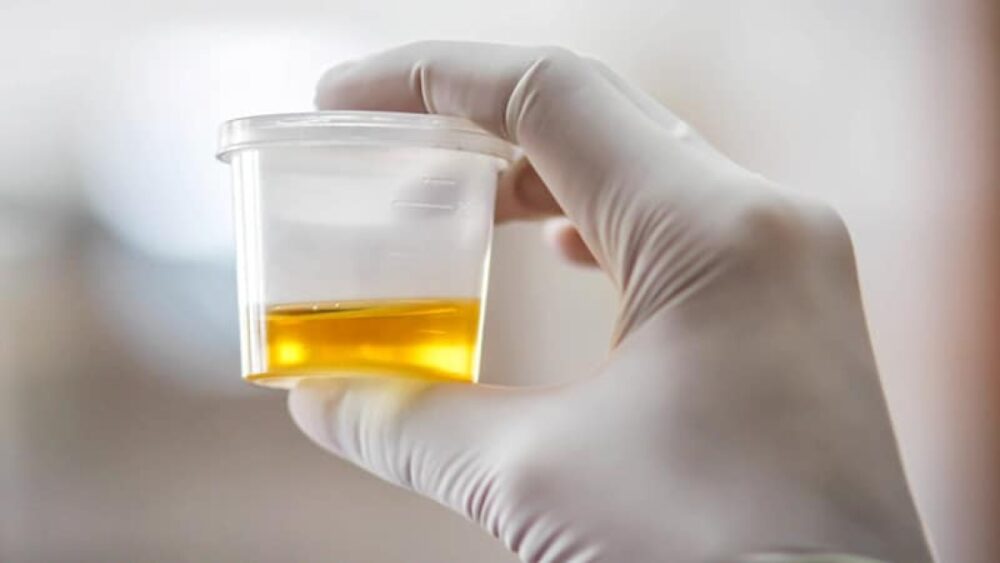SAN DIEGO — Omitting 24-hour urine testing from multiple myeloma response assessments does not compromise accurate tracking of patients’ responses to treatment, a new analysis indicates.
Overall, evaluating patients’ responses using urine-free and traditional criteria led to nearly identical assessments. When comparing the two criteria, only seven of 645 patients evaluated had discordant results.
The findings, presented here at the American Society of Hematology (ASH) 2024 Annual Meeting, add weight to the push to drop the requirement to perform routine urine tests from International Myeloma Working Group (IMWG) response criteria for multiple myeloma, said the study’s lead author, Rahul Banerjee, MD, from Fred Hutch Cancer Center, University of Washington School of Medicine, Seattle.
“International guidelines for multiple myeloma, which haven’t been updated in almost a decade, currently recommend these refrigerated 24-hour urine assessments, which are cumbersome for patients and can create substantial disparities,” Banerjee told Medscape Medical News.
“The international community is actually in the midst of updating its guidelines (I am part of this effort), and our work will hopefully help lead the way for future guidelines that de-emphasize the need for 24-hour urine testing to only a few rare scenarios, such as AL amyloidosis,” Banerjee added.
Urine tests can help detect the presence of abnormal proteins, which can indicate the level of myeloma tumor burden. Performing these tests routinely can help physicians monitor the effectiveness of patients’ treatment in practice and clinical trials.
Some recent data, however, suggest that dropping urine testing from the response criteria would change the response assessment in fewer than 5% of patients. Still, it’s not clear how urine-free criteria would impact assessments of progression free survival.
In the current study, Banerjee and colleagues performed a secondary analysis of the STaMINA trial. In the original trial, patients were randomized to lenalidomide maintenance, tandem autologous hematopoietic cell transplantation followed by lenalidomide maintenance, or consolidation therapy (lenalidomide, bortezomib, and dexamethasone) followed by lenalidomide maintenance until disease progression.
The secondary analysis included 645 patients from the original trial who were evaluable 56 days following autologous hematopoietic cell transplantation. The analysis looked at patients across all groups, but excluded those with progressive disease, and compared patients’ responses using traditional IMWG criteria, which includes 24-hour urine assessments, and urine-free criteria. Response measurements included complete response, very good partial response, partial response, and stable disease.
Patients were a median age of 56 years, 41% were female, 17% were Black, and 7% were Hispanic; 26% had light-chain only disease. About half (49%) had received lenalidomide alone, 28% had received post-autologous stem cell transplantation consolidation followed by lenalidomide, and 24% had received tandem transplantation followed by lenalidomide.
The analysis showed that “urine-free response criteria worked just fine in terms of their prognostic value,” Banerjee said while presenting the findings.
Specifically, the complete response rate was 29.4% using the traditional criteria versus 29.7% using the urine-free criteria. The very good partial response rate was 37.0% with the traditional approach versus 36.6% with the urine-free approach. The partial response rate was 30.7% for both and the stable disease rate was 3.0% for both.
Achieving a complete response based on the urine-free criteria was highly prognostic for progression free survival (P = .005) while achieving a very good partial response by either criterion was borderline prognostic for progression free survival (P = .102).
Only 1.1% of patients — seven patients altogether — had discordant responses between traditional and urine-free response criteria, Banerjee noted. One patient, for instance, was downgraded from a very good partial response with traditional criteria to a partial response with urine-free criteria “because current response criteria rate urine [as] more important than serum-free light chains,” Banerjee explained. Two other patients who met all other stringent criteria for a complete response but still had urine paraprotein at Day 56 were classified as having a very good partial response using traditional criteria but as a complete response with the urine-free criteria.
The other four patients with discordant results were the most important, Banerjee said. These patients were missing urine protein electrophoresis values, which made them non-evaluable using traditional criteria, but became evaluable when using urine-free criteria. “This is, I think, the bane of our existence, right? We ask our patients to put their blood, soul, sweat, and tears into being in a clinical trial, and then they’re not evaluable,” he said.
Overall, these results strongly support the de-emphasis of 24-hour urine requirements in updated IMWG response criteria, said Banerjee. However, he noted, 24-hour urine testing still has a very important place in the screening process and in patients with monoclonal gammopathy of renal significance or AL amyloidosis.
“This study provides reassurance to those of us already not repeating urine tests that urine testing is unnecessary for tracking responses,” said Manni Mohyuddin, MD, from the Multiple Myeloma Program at Huntsman Cancer Institute and assistant professor at the University of Utah, Salt Lake City. “These assessments aren’t done consistently in practice outside of trials anyway, and I hope that this study will lead to a formal change in criteria and the omission of urine assessments in clinical trials.”
Funding for the study was provided by the National Heart, Lung, and Blood Institute; National Cancer Institute; Alliance for Clinical Trials in Oncology; ECOG-ACRIN Cancer Research Group; and SWOG; and contributions were provided by Celgene and Millennium Pharmaceuticals. Banerjee has reported the following disclosures: consultancy for Adaptive Biotechnologies, Bristol Myers Squibb, Caribou Biosciences, Genentech, GSK, Johnson & Johnson/Janssen, Karyopharm, Legend Biotech, Pfizer, Sanofi, and SparkCures; and receiving research funding from AbbVie, Johnson & Johnson, Novartis, Pack Health, Prothena, and Sanofi. Mohyuddin has disclosed no personal payments and no consultation for industry. His institution has received research funding from Janssen for his role as a principal investigator on a trial.
Kate Johnson is a Montreal-based freelance medical journalist who has been writing for more than 30 years about all areas of medicine.



